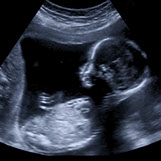As more and more couples choose to cohabit before or instead of marrying it is important to know your legal options and the process should you separate. At Cath Karlin Family Law you will receive expert advice on the consequences of cohabitation breakdown whether it is due to separation or death.
Cohabitation
What is Cohabitation?
Cohabitation refers to the living arrangement of a couple who live in the same property whilst being in a long-term relationship but remain unmarried.
The Family Law (Scotland) Act 2006 was updated to include couples who choose to live together in the same way as a husband and wife or as civil partners and sets out their responsibilities toward each other and, any children should their relationship come to an end.
Separation
There are various rights for cohabiting couples who wish to separate from each other, these include:
- The law assumes joint ownership of goods or the value of goods if it cannot be agreed upon who owns them.
- Subject to any agreement between the cohabitants to the contrary, the money or property shall be treated as belonging to each cohabitant in equal shares. This does not however, apply to the house in which the couple live.
- The Court can be asked to examine the case for financial provisions should it lead to one partner becoming financially disadvantaged. This may occur in cases where one partner has sacrificed their career to look after children or have reduced their capacity to earn money once they have separated. Claims are brought under Section 28 of the Family Law ( Scotland) Act 2006 and must be brought to court and served on the other party within one year of separation.
Death
Should a cohabiting partner die and have not left a will, the surviving partner is not automatically entitled to claim from the estate of their deceased partner.
This could mean that they may be required to move out of the property they once shared together. Should this happen the surviving partner has the right to ask the court to consider giving them a share of the decease’s estate.
Claims are brought under Section 29 of the Family Law ( Scotland) Act 2006 and must be brought to court within six months of death.
Cohabitation Agreement
A cohabitation agreement can be put in place to provide certain securities for both parties should the cohabiting relationship end. The rights provided to a cohabitant are limited should the relationship break down or a partner dies if you do not have a cohabitation agreement in place. This can lead to having to enter a lengthy, costly and stressful legal battle for financial provisions.
At Cath Karlin Family Law you would be given advice on creating a legally enforceable agreement which is fair and reasonable for both parties in event of a separation.
Get in Touch Today
Cath Karlin is a vastly experienced lawyer and uses this alongside her expertise to assist you however possible. She is very familiar with the process of divorce and can expertly guide you whatever your situation. Her divorce and separation expertise spans a number of issues including child custody, division of assets, prenuptial cohabitation agreements, surrogacy cases and expatriate divorce. If you’re curious about costs, we have a page breaking down the initial costs of a consultation. Read her reviews to see how great she is at what she does and get in contact today. I really pride myself on my local reputation, with 60 5-Star Google reviews.
Find out where you stand
Get in touch
How can I help?
If you’d like to arrange a consultation or find out if I can help you please do get in touch.
Main office call: 0131 202 9450
Direct dial call: 0131 202 9451
Address
Cath Karlin Family Law
51 William Street
Edinburgh
EH3 7LW





